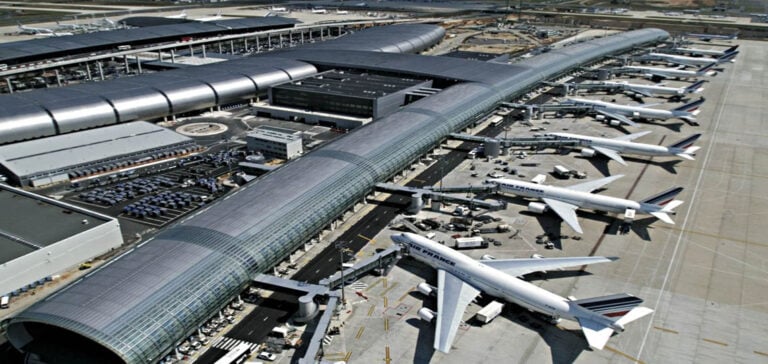The ADP Group and GRTGaz are working together to supply the Paris-Charles-de-Gaulle and Orly platforms with hydrogen. This gas is considered to be one of the ways of decarbonizing air transport.
Joint Hydrogen Supply Study
The two companies “are launching a joint study to define the conditions for piping hydrogen to Paris-Charles de Gaulle and Paris-Orly airports”, they said in a press release. In particular, it will “evaluate and compare from a technical and economic point of view the future major hydrogen supply chains for Paris airports fromhydrogen import or production hubs”, according to the same source.
Infrastructure and Schedule
The two companies also want to “identify the first possible routes (for chains made up of new pipelines)” and “define an estimated timetable for the implementation of these infrastructures”.
This study follows on from the Memorandum of Understanding signed in 2021 between ADP, Air Liquide and Airbus. The aim is to prepare for the arrival of hydrogen in airports by 2035. The partnership also covers engineering studies for the creation of infrastructure. They are needed to accommodate the new aircraft, in particular to supply them with liquid hydrogen.
The Transition to Hydrogen in Aviation
At a time when the airline industry has committed itself to “zero net emissions” by 2050, Airbus is conducting studies with a view to the possible introduction in 2035 of a short- or medium-haul commercial aircraft that would burn hydrogen directly in the engine, thus releasing only water vapor. The aircraft manufacturer is facing skepticism from many in the aviation industry, due to the technical challenges and infrastructure required to operate it.
The Challenges of Hydrogen in Aviation
The main difficulty lies in storing and transporting hydrogen on board. It has to be liquefied at -253°C and stored in cryogenic tanks. The latter occupy a volume four times greater than that of kerosene.
The ADP Group and GRTGaz initiative opens up interesting prospects for the decarbonization of air transport, by integrating hydrogen as a promising alternative. This joint study represents a significant step towards achieving the goal of more sustainable, environmentally-friendly aviation.






















